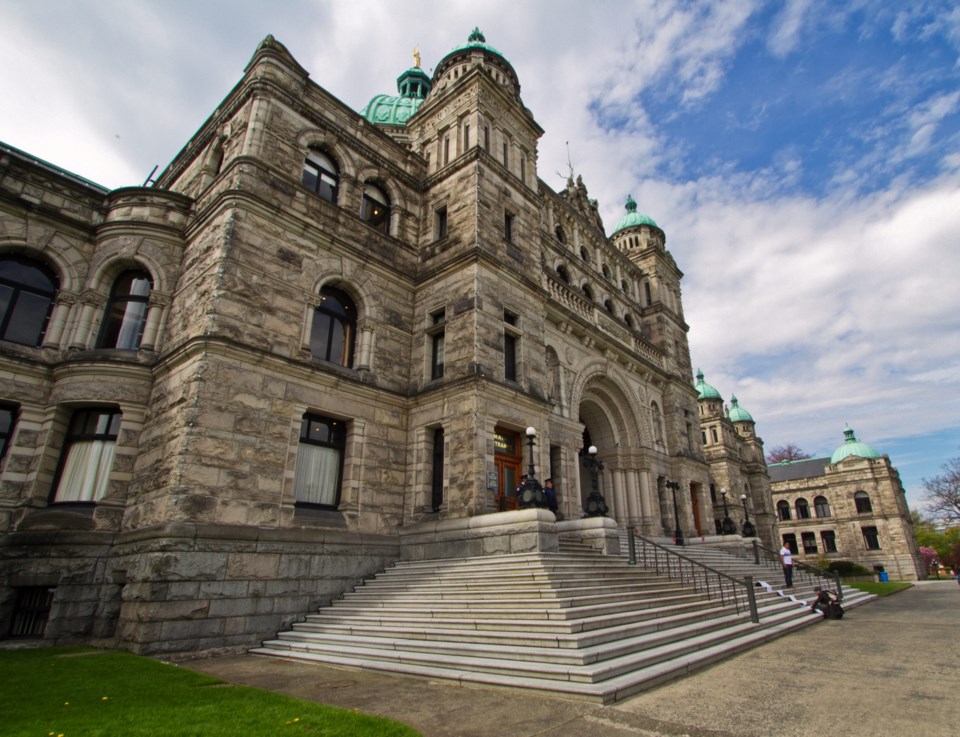Amid a late-January cabinet shuffle in Victoria, there was another notable change afoot in Victoria: the Ministry of Jobs, Trade and Technology was chopping a few very key words from its name.
Instead, the ministry handling the technology portfolio would now be known as the Ministry of Jobs, Economic Development and Competitiveness, led by the previous energy minister, Michelle Mungall.
The province was already in the process of closing its trade offices in Asia — but why scrub “technology” from the name?
Jill Tipping, CEO of the BC Tech Association, said she doesn’t know what prompted the change.
“My understanding is that technology and innovation continue to be priority areas within that ministry, and I do think it’s great to position technology and innovation in the context of economic development,” she said.
In response to a request from Business in Vancouver to interview the new minister, a government spokeswoman said it would be weeks before Mungall would be available to discuss the reasoning behind the name change or what it might signal to industry, or otherwise offer her thoughts on the province’s technology sector.
But a story from Postmedia shortly before the Jan. 22 cabinet shuffle revealed some hints as to the province’s direction and where technology lands as a priority.
In a plan distributed to top provincial bureaucrats and select stakeholders, the government outlined its desire to spread economic growth throughout more rural parts of the province.
“Squamish, the Tri-Cities, Delta, Tsawwassen, Langford and others offer significant advantages for technology start-ups or satellite office locations, offering lower operating and housing costs, while providing employees the convenience of avoiding gridlock and the benefit of saving time and money while reducing their carbon footprint,” Postmedia quoted from the plan.
The framework also cited Interior communities experiencing “transformational growth” in the technology sector as workers seek out a lower cost of living while staying connected to work through high-speed internet.
Vancouver, however, remains the country’s third most desirable tech hub behind Toronto and Ottawa, according to real estate services firm CBRE Group Inc.’s November 2019 Scoring Tech Talent report.
The city has added 22,300 tech workers to the region over the past five years, a 42.6 per cent increase to a total of 74,700.
“Tech in Vancouver is booming,” said Ray Walia, CEO of the Launch Academy technology incubator in Gastown. “But it’s happening despite the government, not because of the government.”
During the first month of 2020, at least three tech companies announced plans to open offices in the city’s downtown core.
Silicon Valley financial technology company Tipalti Inc. is hiring 50 workers, Mastercard Inc. is hiring close to 300 workers and Ottawa-based Shopify Inc. is hiring 1,000 workers.
A $49-million subsidy from Ottawa’s Strategic Innovation Fund helped entice Mastercard to open its new $510-million cybersecurity centre in Vancouver.
“When you are looking at it from a global lens, international tech companies or even just an engineer sitting in Romania doesn’t know Victoria, doesn’t know the Okanagan,” Walia said. “That’s what we should really be focused on, is building the brand of Vancouver as a tech epicentre.”
Walia, who spent much of the last year travelling throughout Asia to tout Vancouver as a tech hub for international players, is also lamenting the shuttering of the province’s trade offices across the continent.
The province is folding them into embassies and consulates led by the federal government, but Walia said he’s lost many of his contacts in Asia as a result.
“International trade takes a hit because those were the touch points, those were the connections B.C. companies had in those markets to expand and grow,” he said. “I’ve got to build my relationships with those people all over again.”
West Vancouver-Sea to Sky MLA Jordan Sturdy, the B.C. Liberals’ opposition critic for technology, said the recent changes are worrisome for technology and trade.
“Why did ‘technology’ disappear from the name of the ministry? Is it less important? Do they not really have any tangible goals and are just hoping things work out?” he said.
“Words matter, right? It sends a signal.”
Click here for original article.



